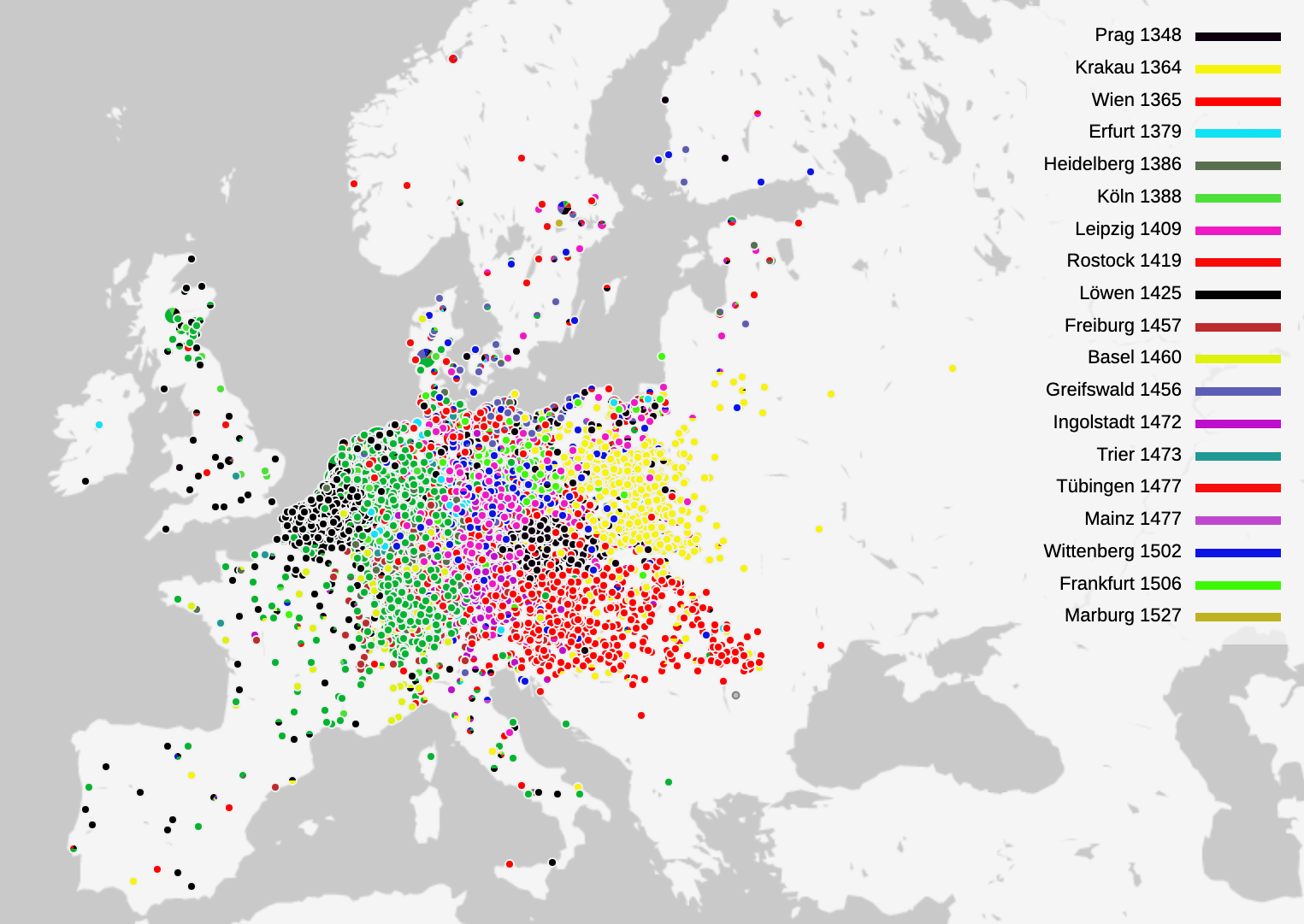Repertorium Academicum Germanicum
.
The graduated scholars of the Old Empire between 1250 and 1550.
The Repertorium Academicum Germanicum (RAG) is a long-term project of Digital History that records and evaluates the biographical, social and cultural data of the university scholars of the Old Empire up to 1550 in a database. The RAG database thus presents the elite of the medieval student body: the magisters of the faculty of arts, the visitors of the three higher faculties of jurisprudence, theology and medicine as well as the university visitors from the nobility, even if they did not receive their doctorate. Not to be found in the database, therefore, are all unpromoted visitors to the faculties of art (scholares simplices) and their baccalauri (baccalaurii artium).
The RAG aims to develop the history of the cultural reaches of an intellectual leadership and impulse group of the pre-modern era and to gain a comprehensive insight into the medieval origins of the modern knowledge society with around 60,000 individuals and their 380,000 life and career stages.
The development of the RAG has been funded since 2001 by the Swiss National Science Foundation (SNSF), the German Research Foundation (DFG) and the Fritz Thyssen Foundation (Cologne). From 2007-2019, the RAG was funded as a project of the Bavarian Academy of Sciences and Humanities (Historical Commission at the Bavarian Academy of Sciences and Humanities) under the Academies Programme by the Federal Republic of Germany, the Free State of Bavaria and the State of Hessen, and from 2008 to 2019 as an organ (Board of Trustees) of the Swiss Academy of Humanities and Social Sciences. In 2020, the RAG was incorporated into the Repertorium Academicum (REPAC) and will be continued therein. Further information on the project: http://rag-online.org

Areas of origin and communication of scholars in the RAG 1250-1550 according to universities (Source: RAG)